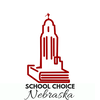|
Deborah Andrews, a 40-year resident of Nebraska, mother, volunteer, and candidate for the state legislature is advocating for a school choice vehicle that has already been implemented in Florida, Arizona, Mississippi, Tennessee, and Nevada: Education Savings Accounts (ESAs)
In a 2003 interview with Columbia Teachers College professor Pearl Rock Kane, renowned economist Milton Friedman pondered, "Why is it sensible for a child to get all his or her schooling in one brick building? Why not have partial vouchers? Why not let [parents] spend part of the voucher for math in one place and English or science somewhere else?" In places like Arizona and Florida, parents can do just that. These states have separated the financing of education from the delivery of services. They recognize that "public financing of education does not have to mean that education is delivered in government schools." And this framework is paying off hugely for many students. In "ESAs Are Changing the Game," author Lindsey M. Burke writes about a blind student in Arizona whose education has been transformed by access to school choice in the form of an ESA: "While the Ashtons used the bulk of their ESA to pay for tuition at a private school, they were also able to direct dollars toward Max’s assistive technology to facilitate his learning, along with his Braille textbooks and talking computer. And as Marc mentioned, they still had money left over at the end of each year to roll into a college savings account, which Max will put toward his tuition at Loyola Marymount this fall." School choice advocates in Nebraska, including Deborah Andrews, are gathering support for Nebraska Academic Savings Accounts. Andrews explains: "90% of the state aid which would have gone to the school, instead would be deposited into an account to fund the individual student’s education. Parents/guardians choose which learning options best suit their child. Participants must agree to utilize effective reading and math curriculum and instruction. Participants are held accountable for student learning and achievement each year." Andrews continues: "Nebraska is one of only a handful of states which don't allow school choice: vouchers, tax credits or charter schools. Nebraska does allow for children to be home-schooled or attend private school at parent/guardian expense. These parents/guardians are required to continue to fund public schools their children do not attend. In effect, school choice restricted to the elite." ESAs are changing lives for many students. The Nevada program offers eligibility to all 450,000+ public school students in the state. Will we provide similar opportunities for Nebraska's students?
0 Comments
Your comment will be posted after it is approved.
Leave a Reply. |
|


 RSS Feed
RSS Feed